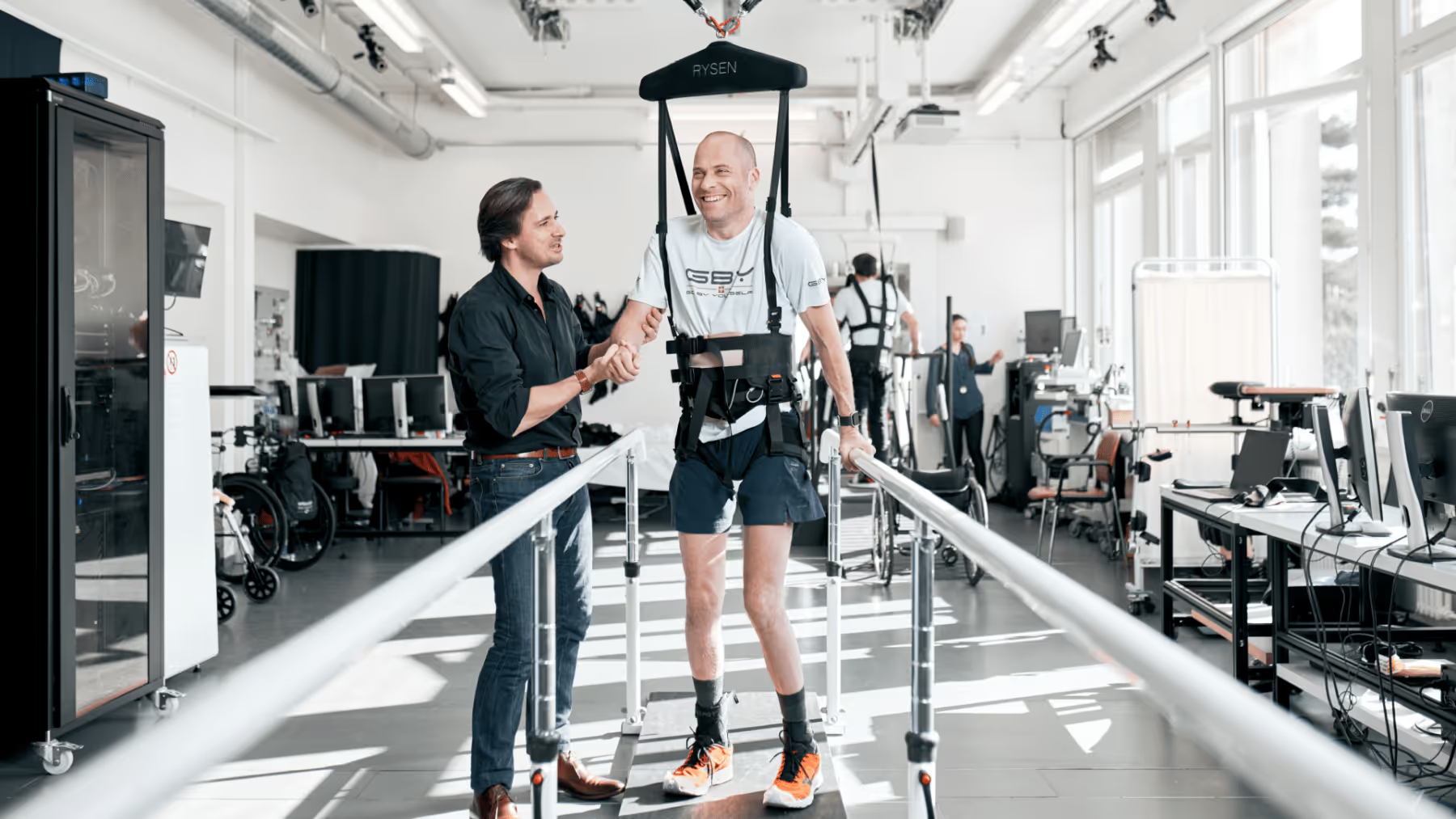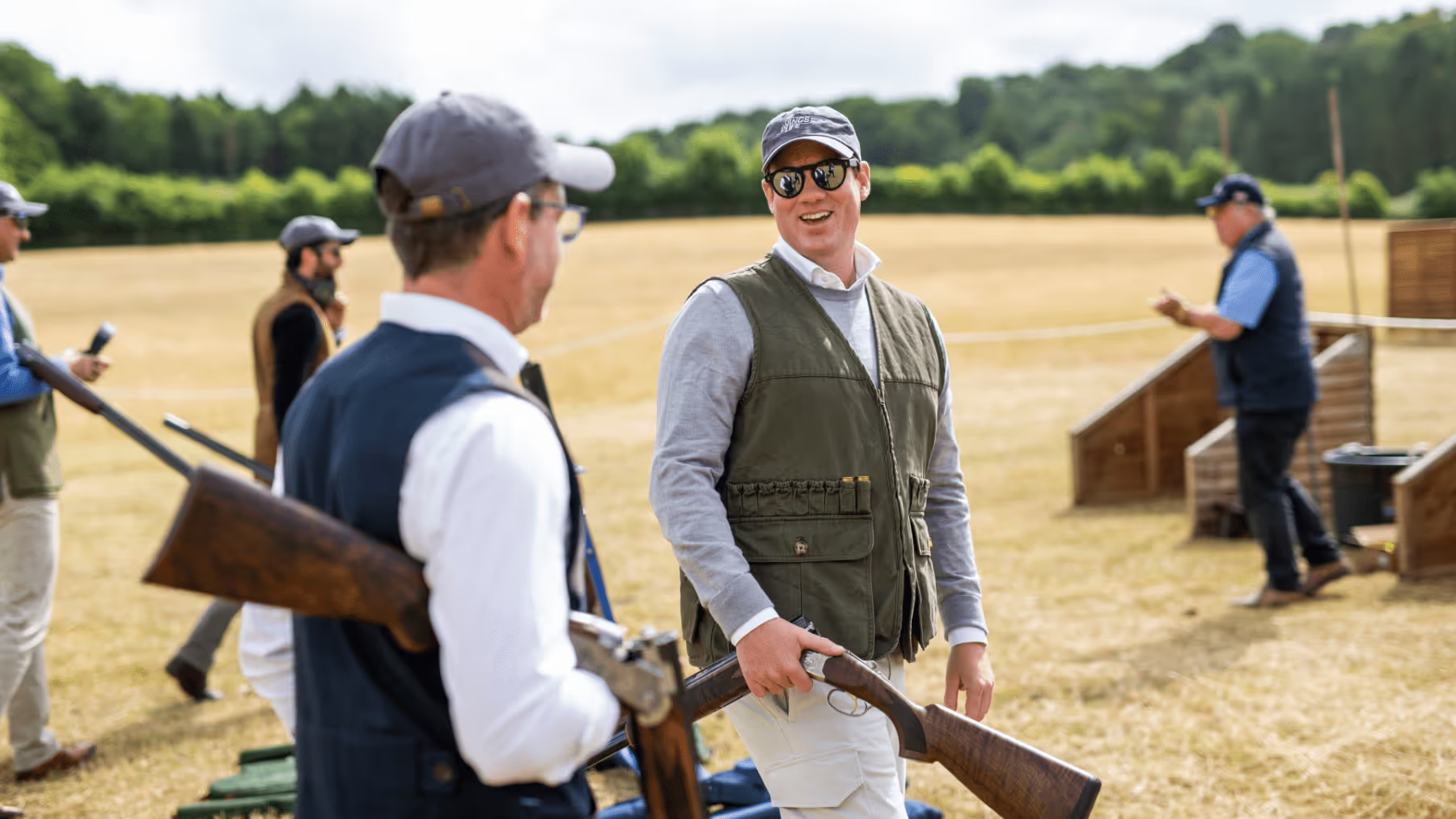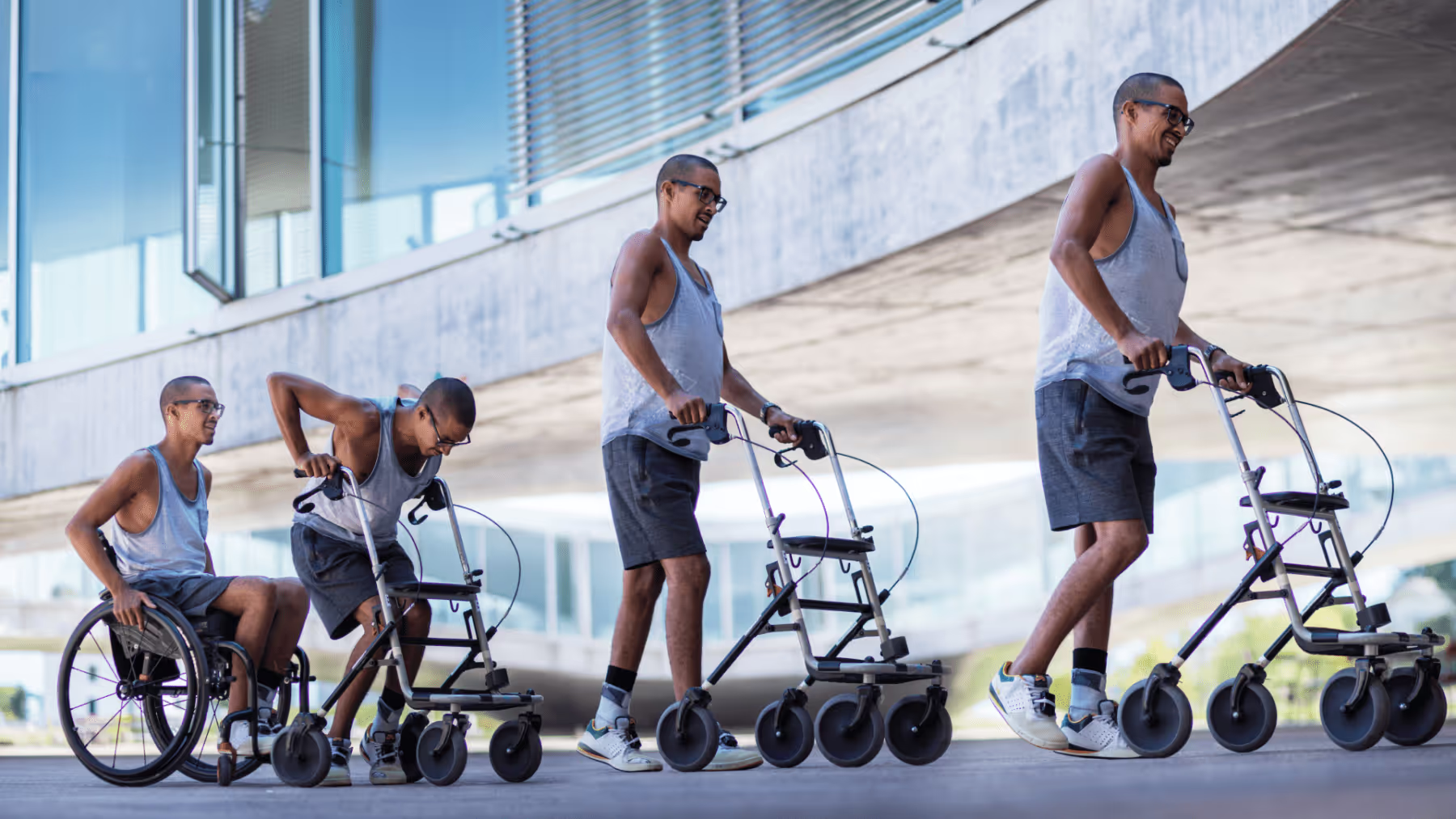
Philanthropy
Our Studio is proud to support multiple charities and non-profit organizations. We believe in giving back to the community and making a positive impact on society. We understand that there are many pressing issues and causes in the world and we want to make a difference in as many of them as possible.
Our charitable giving program is designed to support a wide range of causes, including education, health and wellness, poverty alleviation, and environmental protection.By supporting multiple charities, we hope to make a meaningful impact in the lives of people in need and help create a better world for future generations. Our commitment to charitable giving is a core part of who we are as a Studio and our dedication to helping others.

We are pleased to announce that our CEO, Iain Johnson, has become a Patron for Wings for Life.
Wings for Life is a not-for-profit spinal cord research foundation, their mission is to find a cure for spinal cord injury. Iain will support UK CEO, Emma Hind, on her vision for the charity which is doing amazing research and development into this sector with the mantra ‘science is hope’ The brand and advisers hope to challenge the status quo, but not at the expense of excellence. We champion new possibilities and are not daunted by failures and obstacles.

He is joined by Christian Horner, David Coulthard, Mark Webber, Sean Rose, Abdulaziz Turki Al Faisal, Marc Coma, Bjorn Dunkerbeck, Ed Jackson, Alex Albon and Sam Bloom. To name a few personalities from the worlds of culture, economy and sport who give their time to support Wings for Life.
The driving forces behind Wings for Life are the two-time motocross world champion Heinz Kinigadner and the former founder of Red Bull, Dietrich Mateschitz.
In 2003 Kinigadner’s son, Hannes, had a tragic accident which left him tetraplegic. After Hannes’ injury, Kinigadner and Mateschitz invited leading scientists from across the world to come to Salzburg. It soon became clear that, contrary to common opinion, there is legitimate reason to believe that traumatic spinal cord injury could be cured. Ground-breaking discoveries made by Prof. Dr. Sam David in 1981 and by Prof. Dr. Martin Schwab in the early 1990s showed that injured nerve cells in the spinal cord are capable of regeneration after specific types of treatment. Kinigadner and Mateschitz soon realised that despite the discoveries of a decade prior, research into spinal cord injury remained grossly underfunded and progress was stunted. Paralysis is not considered a ‘widespread condition’ by pharmaceuticals and governments therefore investing millions in research to help a relatively small number of people is, essentially, an unprofitable endeavour. This realisation prompted Kinigadner and Mateschitz to set up the Wings for Life spinal research foundation in 2004 with the sole goal of finding ways to cure all people affecteted.


Why Wings for Life?
- The only sci medical research foundation with a dedicated clinical translational programme (ATP)
- The only research foundation where 100% of donations fund research, not overheads
- A truly global funding portfolio, covering all areas of research and treatment
- Stringent peer reviewed application process
- Internationally renowned Scientific Advisory Board
What Wings for life does1. Basic & Preclinical researchA spinal cord injury interferes with a complex system–the central nervous system. To find treatments it is essential to understand the basic biology of the disease processes and discover the building blocks for new therapeutic interventions.2. Clinical StudiesThose therapies or drugs that prove highly promising in basic and preclinical research must be tested in a clinical study to understand how well they can be tolerated and how effective they are in humans with a spinal cord injury.3. CommunicationScientific communication plays an important role in the advancement of research. Wings for life organises international conferences every year to bring together leaders in research and medicine. The foundation also ensures that the scientists we fund publish the conclusions of their projects. These research findings appear in renowned journals which prevents replication of the same studies across the globe.They have achieved the following:
- 18 Years of funding research
- 64 ongoing research projects
- 65m+ Euros raised
- 259 projects funded to date
Finding a cure is not a matter of if it is possible, but when it will happen.


Historically, both cancer and HIV we reproable death sentences, even as recently as the 1980s.Today, testicular cancer is 98% curable and HIV is a condition classed as a “manageable illness”. Both these medical advances were only made possible through scientific research. Curing spinal cord injury is one of the last few riddles that remain, but Wings for Life are a small charity with a big ambition.
Every eight hours someone in the UK sustains a spinal cord injury and most become wheelchair users as a result. It can affect any one at any time, and the impact lasts a lifetime. At Wings for Life, they believe in a different future where people affected by spinal cord injury have a set of treatment options available to them. They fund the world’s most promising scientific research and clinical trials around the globe, aimed at finding a cure for spinal cord injury. Since Wings for Life was first founded, several vital break throughs have been made and there is now real and legitimate hope spinal cord injury can be cured in our lifetime.
They operate in a saturated market, competing with prevalent causes such as cancer, child poverty and heart disease and as a result scientific research into curing spinal cord injury is desperately underfunded. Thanks to the resilient nature of humankind, most people manage to adapt their lives around their injury, but the cost can be huge. Not just to the national health service, but also to every individual affected, as well as their loved ones. After an injury most people live through months if not years of rehabilitative therapy, living in hospital spinal units. On discharge, many are reliant on full-time live-in carers. In the UK, there are numerous ‘support’ charities out there, who provide practical assistance after an injury but very few dedicated to finding a cure. In order to maximise their impact, Wings for Life promise that 100% of every £1 donation we receive goes directly into top class research.
Donate here
Iain is honoured to be included in supporting such an incredible cause and looks forward to developing his relationship with Wings for Life.
Learn more about Wings For Life here



Rigby & Rigby x Lighthouse – The Construction Charity
At Allect Design Group, Rigby and Rigby are committed to making a positive impact in the communities where we live and work. That's why we are proud to support the Lighthouse Charity, the only charity that is 100% dedicated to the emotional, physical and financial wellbeing of the construction workforce and their families, providing essential support, resources, and advocacy for those facing challenges.
Life's challenges, such as financial difficulties, health issues, or personal crises, can leave individuals feeling overwhelmed and vulnerable. In these moments, access to support and resources can make a significant difference, helping people navigate tough times and regain stability. By offering a helping hand, the Lighthouse Charity, not only addresses immediate needs but also empowers individuals to rebuild their lives and contribute positively to their communities. When we come together to support those in need, we foster a culture of empathy and ensure that no one is left behind in times of adversity.
Supporting these campaigns is crucial and plays a vital role in raising awareness, reducing stigma and encouraging people to seek help. Unequivocally in-tune and experienced with the realities and hardships some construction workers face within the industry, Lighthouse work with passion, empathy, conviction and clarity.
Lighthouse provides a fully confidential 24/7 free helpline offering support on a wide variety of wellbeing issues, a live webchat service and text messaging service. Lighthouse Charity Pillars of SupportThrough fundraising efforts they have made it possible to take help, directly where it is needed most with their 'Make it Visible Tours', a site visit where construction workers can speak confidentially face to face with a mental health ambassador. Our partnership with Lighthouse Charity is more than just financial support; it's a commitment to raising awareness, breaking down stigma, and creating a culture of support. Through employee engagement initiatives, fundraising efforts, and volunteering opportunities, we aim to empower our team and the wider community to contribute to this crucial cause. Watch this space as some of us sign up to run the London Landmarks Half marathon.
At Allect, we display posters across our construction sites and by supporting #makeitvisible campaigns and engaging in often hard hitting conversations, we hope to break down barriers that prevent individuals from accessing support they need, challenge misconceptions and encourage a more compassionate society.
Through the Lighthouse Charity we also have access to a range of online training modules - completing these and educating ourselves equips us with the skills and knowledge needed to better support and uplift those in need. Together with The Lighthouse Charity, we strive to ensure that no one has to face hardships and struggle alone. By supporting their life-changing programs, we are helping to make vital services accessible to those who need them, fostering resilience, hope, and empowerment.




















